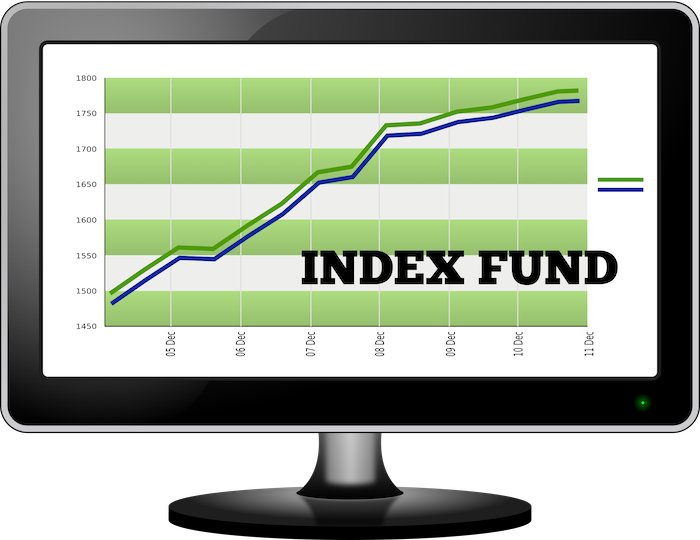Investing in index funds can be a great way to achieve long-term financial growth. With the potential to provide a steady income stream, index funds can be a reliable source of returns over the long term. When you grasp the financial advantages associated with investing in index funds, you empower yourself to make well-informed investment choices and maximize the potential of your funds. This article will explore the financial benefits of investing in index funds for long-term growth. We will look at the potential returns, the tax advantages, and the cost savings associated with index funds. By the end of this article, you will better understand the financial benefits of investing in index funds and be able to make informed decisions about your investments.
Understanding the Benefits of Investing in Index Funds
Index funds offer a remarkable opportunity to diversify your investment portfolio and capitalize on the enduring growth of the stock market. Index funds grant investors the opportunity to access long-term market progress by replicating specific indices such as the S&P 500 or the Dow Jones Industrial Average. Investing in index funds can benefit from the underlying index’sindex’s performance without picking individual stocks.
Index funds offer several advantages over other types of investments. First, they are low-cost and highly diversified. Index funds are typically passively managed, meaning a fund manager does not actively manage them. This means the fees associated with index funds are typically much lower than those associated with actively managed funds. Additionally, index funds provide instant diversification, as they comprise many different stocks. This helps to reduce the risk of investing in any one stock.
Second, index funds are tax-efficient. Due to their passive management approach, index funds typically exhibit lower turnover rates compared to actively managed funds. This means that index funds generate fewer capital gains taxes, which can help to improve your overall return on investment.
Finally, index funds provide a simple and easy way to invest in the stock market. By investing in an index fund, you can benefit from the performance of the underlying index without having to do any research or analysis. This makes index funds ideal for investors who are just starting or need more time or expertise to pick individual stocks.
In summary, embracing index funds as part of your investment strategy presents an excellent opportunity to diversify your portfolio and capitalize on the long-term growth potential of the stock market. Index funds offer low costs, instant diversification, tax efficiency, and a simple and easy way to invest. For these reasons, index funds are an attractive option for many investors.
Exploring the Tax Advantages of Index Funds
Exploring the Tax Advantages of Index Funds is essential for any investor looking to maximize their return on investment. Index funds are mutual funds that track a specific market index, such as the S&P 500. By investing in index funds, investors can benefit from the underlying index’s performance without picking individual stocks.
Index funds offer several tax advantages to help investors reduce their overall tax burden. The first advantage is that index funds are considered passive investments, meaning the gains are taxed at the lower capital gains rate rather than the higher ordinary income rate. This can result in significant tax savings for investors.
Another tax advantage of index funds is that they are not actively managed. This means that investors are not subject to the higher taxes associated with actively managed funds. This is because actively managed funds are subject to higher taxes due to the additional costs of managing the fund.
Finally, index funds are considered long-term investments, meaning any gains are taxed at the lower long-term capital gains rate. This can result in significant tax savings for investors, especially if they hold the fund for a long time.
Exploring the Tax Advantages of Index Funds is essential for any investor looking to maximize their return on investment. By understanding the tax advantages of index funds, investors can make more informed decisions regarding their assets and ensure they are getting the most out of their money.
Examining the Potential for Long-Term Growth with Index Funds
Index funds provide investors with an economical and diversified avenue to participate in the stock market, making them an exceptional tool for long-term growth. By investing in an index fund, individuals can capitalize on the potential for sustained growth without the need to select individual stocks or engage in active portfolio management.
Index funds are mutual funds that track a particular stock market index, such as the S&P 500. These funds are designed to replicate the index’s performance, meaning that they will generally move in the same direction as the index. This means that investors can benefit from the potential for long-term growth in the stock market without actively managing their portfolios.
Index funds are typically low-cost and offer a high degree of diversification. This means that investors can benefit from the potential for long-term growth without worrying about the risks associated with individual stocks. By investing in an index fund, investors can benefit from the potential for long-term growth without actively managing their portfolios.
Index funds are also tax-efficient, meaning that investors can benefit from the potential for long-term growth without worrying about their investments’ tax implications. This makes index funds an attractive option for long-term investors.
Overall, index funds offer investors a low-cost and diversified way to gain exposure to the stock market. By investing in an index fund, investors can benefit from the potential for long-term growth without picking individual stocks or actively managing their portfolios. This makes index funds an attractive option for long-term investors looking to benefit from the potential for long-term growth.
Assessing the Risks Associated with Index Funds
When considering investments in index funds, it is crucial to evaluate the associated risks. Index funds are designed to track specific indices like the S&P 500 or the Dow Jones Industrial Average. By offering a diversified portfolio of stocks, these funds can mitigate the risk of losses resulting from market volatility. However, it is vital to comprehend the potential risks associated with index funds prior to making an investment decision.
The first risk to consider is market risk. Index funds are subject to the same market risks as individual stocks, meaning the fund’s value can fluctuate with the market. The fund’s value can decline significantly if the market takes a downturn. Additionally, index funds are subject to tracking error, which is the difference between the fund’s performance and the index it is tracking. This can lead to unexpected losses if the fund needs to follow the index more closely, as expected.
Another risk to consider is liquidity risk. Index funds are typically traded on exchanges, meaning they can be bought and sold quickly. However, finding buyers or sellers can be challenging if the fund is not traded on a business. This can lead to losses if the fund is not liquid enough to be sold quickly.
Finally, index funds are subject to management risk. The fund manager is responsible for selecting the stocks in the fund and deciding when to buy and sell them. The fund could suffer losses if the manager is not experienced or makes sound decisions.
Index funds can be a great way to diversify a portfolio and reduce risk. However, assessing the risks associated with index funds before investing is essential. By understanding the risks, investors can make informed decisions and minimize potential losses.
Maximizing Returns with Strategic Index Fund Investing
Maximizing returns with strategic index fund investing is a powerful way to build wealth over time. By taking advantage of the long-term growth potential of the stock market, investors can create a diversified and well-positioned portfolio to generate strong returns.
Index funds are mutual funds that track a specific index, such as the S&P 500. Investing in an index fund can benefit from the collective performance of the underlying stocks in the index. This means that investors can benefit from the long-term growth potential of the stock market without having to manage their investments actively.
Index funds are typically low-cost and offer a diversified portfolio of stocks. This makes them an attractive option for investors who want to maximize their returns while minimizing risk. Investing in an index fund can benefit from the collective performance of the underlying stocks in the index while avoiding the costs associated with actively managing their investments.
Strategically incorporating index fund investments can serve as a potent tool for investors aiming to optimize their returns. By carefully selecting suitable index funds, investors can create a well-positioned portfolio to generate strong returns over the long term.
When selecting index funds, investors should consider the fees associated with the fund, the performance of the underlying stocks, and the risk associated with the fund. By carefully selecting suitable index funds, investors can create a well-positioned portfolio to generate strong returns over the long term.
In addition to selecting suitable index funds, investors should also consider the asset allocation of their portfolios. Asset allocation divides a portfolio among asset classes, such as stocks, bonds, and cash. Investors can minimize risk and optimize returns by diversifying their portfolio across different asset classes.
By taking advantage of the long-term growth potential of the stock market, strategic index fund investing can be a powerful way to build wealth over time. By carefully selecting suitable index funds and properly allocating their portfolio, investors can create a well-positioned portfolio to generate strong returns over the long term.




